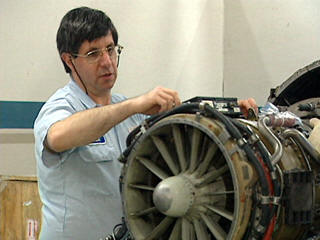 |
|
|
|
|
|
|||
|
By Bill Goldston |
||||
 |
March 11, 2010 -
The recent announcement by Air
“Over one thousand
highly skilled aircraft mechanics at Air “If we don’t do something right now, these jobs and this industry aren’t coming back,” declared IAMAW Canadian General Vice-President Dave Ritchie. The IAMAW is calling for an immediate response to this crisis, calling on their government to step up to this challenge. |
|||
|
“Air
“While the Mulroney government’s Air Canada privatization legislation contained a requirement for Air Canada to continue to have maintenance bases in Mississauga, Winnipeg and Montréal, this seems to have no appreciable effect on the company’s plans to phase out a large part of heavy maintenance work and ship it abroad, with the inherent risks of weaker regulation and lower standards,” explained Atkinson. “ “
|
||||
|
Air
Air
Canada's national
airline originated from the Canadian federal government's 1936 creation
of Trans-Canada Airlines (TCA), which began operating its first
transcontinental flight routes in 1938. In 1965, TCA was renamed Air
Air |
| ©AvStop
Online Magazine
Contact
Us
Return To News
|
|
